Journey to Jerusalem

Prologue
Jews consider themselves to be God's Chosen People, belonging to the Promised Land. Paradoxically, they also believe that a Messiah will come to end war and conflict, unite people of all religions and races, and establish peace and righteousness in God's kingdom.
Jerusalem
In May 2023, my wife and I visited Makkah, Jerusalem, and the Giza pyramids. During our Jerusalem tour, we visited the Old City. We walked through the Moslem, Christian, Jewish, and Armenian quarters and then visited the Western Wailing Wall, the Al-Aqsa Mosque, and the Dome of the Rock. We also went to Jesus' crucifixion and burial sites (Church of the Holy Sepulchre), the Virgin Mary's tomb, and the Church of Saint John the Baptist.
The Old City is surrounded by a wall with eight gates, the most notable of which is the Golden Gate or the Gate of Mercy. This Eastern Gate, facing the Mount of Olives, has been sealed since the Middle Ages. It is to be reopened upon Messiah's arrival.
We also travelled to many parts of the West Bank, including Bethlehem (the birthplace of Jesus Christ) and the tombs of Abraham, his wife Sarah, son Isaac, and Isaac's wife Rebecca at Hebron. We have been to Jericho at the Jordan River where Jesus was baptised and the Dead Sea. We also visited the Jewish neighbourhood where orthodox Jews live. Unfortunately, we could not make time to visit Nazareth, Nablus, or the Sea of Galilee.
After visiting the controversial wall separating Bethlehem from Jerusalem, we planned to visit the Gaza Strip wall. Sadly, during the night of May 9, conflict between Gaza and Israel erupted, following Israel's assassination of three Islamic Jihad leaders, with missiles exchanged on both sides. Over the course of the Israeli offensive against Gaza—dubbed Operation Shield and Arrow—some thirty Palestinians were killed and many more wounded, with much property damage and destruction. There were one dead and a dozen wounded on the Israeli side as reported in The Jerusalem Post on May 12, 2023.
Despite the outbreak of the conflict, we were determined to make our planned trip to the Gaza wall on the morning of May 10. Our taxi driver was an Arab Israeli who spoke Hebrew, Arabic, and English and was of great help.
After nearly two hours' drive, we came to deserted roads approaching the Gaza area. First, we came to a roadblock guarded by Israeli soldiers in full war gear with automatic weapons. From a distance, one of the soldiers signalled our driver to stop and turn back. He obliged.
The driver took another route, only to come to a second roadblock. There were no soldiers at this site, but there was a big board with a prominent 'No Entry' sign, with a phone number if help was needed. Our driver called and spoke to a lady, but to no avail. He was told to turn back. He obliged but did not give up on the mission.
We arrived at a third roadblock. There was no heavy metal gate, rather, a red tape hanging across the thoroughfare with several soldiers guarding the site. Two of them approached our car, cautiously pointing their automatic weapons at us. We freaked out; it was a tense moment but this had become a common occurrence.
One of the soldiers spoke some English. I made a request to allow us to go to the Wall to take a photo. I explained that we'd come a long way from Bangladesh, and it would be a shame not to see the world's most iconic wall.
The soldier explained that it was beyond his jurisdiction and would involve permission from the higher authorities. I asked, "How far is the wall?" He replied, "About a kilometre." I begged, "It is so close, my friend. We simply want to drive to the wall, take a photo, and return in just a few minutes." The soldier explained that we might not be able to reach the wall, let alone return—there were Palestinian snipers on the other side. They might shoot at the car at first sight.
We understood the seriousness of the situation. The driver quickly turned the car around and sped towards Jerusalem. Hours after we left, the driver explained that it was on the radio that the crossfire had resumed, causing additional fatalities.
Had we approached the wall, there could have been additional casualties of one Bangladeshi-Australian couple and an Israeli taxi driver. I have no doubt it would have received international media attention, outrage, and condemnation.
After our spiritual journey to the Old City and West Bank, the realities of life caught up to us.
The conflict has become routine, an ongoing phenomenon. Its pain and suffering go beyond borders. All political and diplomatic efforts have failed so far. Blame game leads nowhere. The only option now appears to be the Messiah.
When will the Messiah come, or where will he be born? From the Jewish perspective, the Messiah's birthplace would probably be Bethlehem, where Jesus was born or Hebron, where Abraham is buried. Both areas are located in the West Bank, currently under the Palestinian authority. The Messiah's birthplace could also be in one of the other Palestinian-controlled areas, including the Gaza Strip.
This would be the worst-case scenario because if the Messiah happens to be born in the Gaza Strip, he would be raised in the midst of conflict and violence, and suffer pain and agony, just as Jesus did. Or, the Messiah himself might become a collateral damage of the Israeli aggression.
A man to perform the greatest miracle since the creation of life—freeing Adam's children from hate and anger, torture and cruelty, and vengeance and violence—ought to be above race and religion, nation and tribe, and colour and culture. The Jews must not only be prepared for his arrival, but also should strive to make the world a safer place for his birth, journey, and ultimate mission—peace among the warring people, tribes, and nations.
Epilogue
"A dog licking his wounds" is a physical as well as a metaphorical expression with three key elements: the nature of the wound, the nature of the licking, and the nature of the outcome.
I have been fighting two battles all my life: outer and inner. The inner battles have mostly been wounds that I have been licking since my childhood. On a smaller scale, they concern the sufferings of a stray dog, a cockroach, a snake, ants and plants. On a larger scale, my battle has been with human tragedy and violence: invasion, torture, genocide, and rape.
Violence is as old as man itself. I can only list the most recent violent events: extermination of six million German Jews, the riots between the Hindus and Muslims during the Partition of 1947, the 1971 genocide in Bangladesh, the 2002 Gujrat massacre, the invasions of Afghanistan (both 1979 and 2001), Iraq (2003), Ukraine (2022) and, last but not the least, the ongoing Israeli-Palestinian conflict.
No one can give an exact account of destruction, deaths, the wounds, and the displaced refugees. No one knows exactly how much money and resources are being spent piling up destructive and killing machines while one child is dying every few minutes. And every now and then, scores of men, women, and children perish drowning in seas and suffocating in container trucks.
Tohon is a short-story writer. He has already published 20 short stories in The Daily Star literary page.

 For all latest news, follow The Daily Star's Google News channel.
For all latest news, follow The Daily Star's Google News channel. 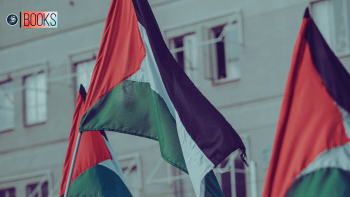
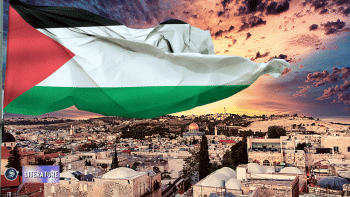
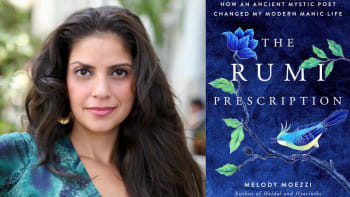
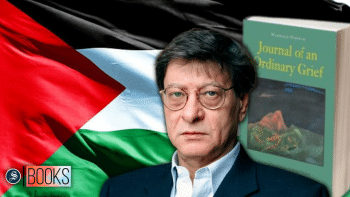



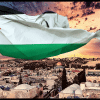





Comments